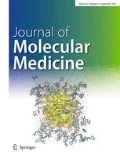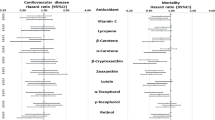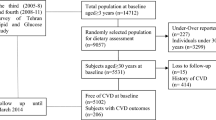Summary
Previous cross-cultural comparisons of the mortality from ischemic heart disease in European communities with associated plasma levels of essential antioxidants have revealed strong inverse correlations for vitamin E and relatively weak correlations for other antioxidants. Similarly, in a case-control study in Edinburgh low plasma levels of vitamin E were significantly associated with an increased risk of previously undiagnosed angina pectoris whereas low levels of other essential antioxidants lacked statistical significance. The current Basel Prospective Study is particularly well suited to elucidate the impact of antioxidants other than vitamin E. In this population (which was recently evaluated regarding cancer mortality) the plasma levels of vitamins E and A are exceptionally high and above the presumed threshold level of risk for ischemic heart disease. The present 12-year follow-up of cardiovascular mortality in this study reveals a significantly increased relative risk of ischemic heart disease and stroke at initially low plasma levels of carotene (< 0.23 μmol/l) and/or vitamin C (< 22.7 μmol/l), independently of vitamin E and of the classical cardiovascular risk factors. Low levels of both carotene and vitamin C increase the risk further, in the case of stroke even with significance for overmultiplicative interaction. In conclusion, in cardiovascular disease independent inverse correlations may exist for every major essential antioxidant although the latter can also interact synergistically. Therefore future intervention trials of antioxidants in the prevention of ischemic heart disease should primarily test the simultaneous optimization of the status of all principal essential antioxidants.
Similar content being viewed by others
Abbreviations
- CVD:
-
cardiovascular disease
- IHD:
-
ischemic heart disease
- LDL:
-
low-density lipoproteins
References
Brubacher GB, Vuilleumier JP (1974) Procedure for the determination of vitamin C in plasma. In: Curtius HC, Roth M (eds) Clinical biochemistry principles and methods. de Gruyter, Berlin, pp 992–997
Editorial (1992) Atherosclerosis goes to the wall. Lancet 339:467–468
Enstrom JE, Kanim LE, Klein MA (1992) Vitamin C intake and mortality among a sample of the United States population. Epidemiology 3:194–202
Esterbauer H, Puhl H, Dieber-Rotheneder M, Waeg G, Rabl H (1991) Effect of antioxidants on oxidative modification of LDL. Ann Med 23:573–581
Frei B (1991) Ascorbic acid protects lipids in human blood plasma and low-density lipoprotein against oxidative damage. Am J Clin Nutr 54:1113S–1118S
Gaziano JM, Manson JE, Ridker PM, Buring JE, Hennekens CH (1990) Beta carotene therapy for chronic stable angina. Circulation 82 [Suppl III]: 201
Gey KF (1986) On the antioxidant hypothesis with regard to arteriosclerosis. Bibl Nutr Dieta 37:53–91
Gey KF (1992) Vitamin E and other essential antioxidants regarding coronary heart disease: risk assessment studies. Review in: Packer L, FuchsJ (eds) Vitamin B: biochemistry and clincial applications. Dekker, New York, pp 589–633
Gey KF, Puska P, Jordan P, Moser UK (1991) Inverse correlation between plasma vitamin E and mortality from ischemic heart disease in cross-cultural epidemiology. Am J Clin Nutr 53:326S–334S
Harats D, Ben-Naim M, Dabach Y, Hollander G, Havivi E, Stein O, Stein Y (1990) Effect of vitamin C and E supplementation on susceptability of plasma lipoproteins to peroxidation induced by acute smoking. Atherosclerosis 85:47–54
Jialal I, Vega GL, Grundy SM (1990) Physiologic levels of ascorbate inhibit the oxidative modification of low density lipoprotein. Atherosclerosis 82:185–191
Manson JE, Stampfer MJ, Willett WC et al. (1991) A prospective study of antioxidant vitamins and incidence of coronary heart disease in women. Circulation 84 [Suppl II]:546
Riemersma RA, Wood DA, Macintyre CCA, Elton RA, Gey KF, Oliver MF (1991) Risk of angina pectoris and plasma concentrations of vitamins A, C and E and carotene. Lancet 337:1–5
Stähelin HB, Gey KF, Eichholzer M et al. (1991) Plasma antioxidant vitamins and subsequent cancer mortality in the 12-year follow-up of the Prospective Basel Study. Am J Epidemiol 133:766–775
Steinberg D (1992) Summary of the proceedings of a NHLBI workshop: Antioxidants in the Prevention of Human Atherosclerosis, September 5–6, 1991, Bethesda. Circulation 85:2338–2344
Wartanowicz M, Panczenkof Kresowska B, Ziemlanski S, Kowalska M, Okolska G (1984) The effect of a-tocopherol and ascorbic acid on the serum lipid peroxide level in elderly people. Ann Nutr Metab 28:186–191
Witztum JL, Steinberg D (1991) Role of oxidized low density lipoprotein in atherogenesis. J Clin Invest 88:1785–1792
Vuilleumier JP, Keller HE, Gysel D, Hunziker F (1983) Clinical chemical methods for the routine assessment of the vitamin status in human populations. I. The fat-soluble vitamins A and E, and β-carotene. Int J Vitam Nutr Res 53:262–272
Author information
Authors and Affiliations
Rights and permissions
About this article
Cite this article
Gey, K.F., Stähelin, H.B. & Eichholzer, M. Poor plasma status of carotene and vitamin C is associated with higher mortality from ischemic heart disease and stroke Basel Prospective Study. Clin Investig 71, 3–6 (1993). https://doi.org/10.1007/BF00210955
Received:
Revised:
Accepted:
Issue Date:
DOI: https://doi.org/10.1007/BF00210955




